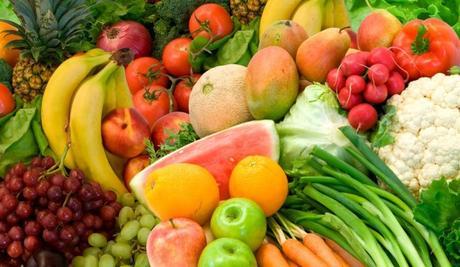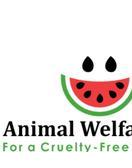The Ultimate Guide To Vegan!
Can I get all my nutrition from a vegan diet?
If you’re considering going vegan, there are many perfectly reasonable questions you may have.
Of course, you know that vegan lifestyle, free of any animal products (including meat, eggs and dairy), is better for animals and the planet.
In addition, vegan diet is associated with numerous health benefits, so it’s also great for yourself!
However, it’s very important to make informed, balanced choices when it comes to nutrition. As vegan diet is so different from conventional Western-style diets, which are also being heavily promoted, it’s perfectly natural to wonder if you’ll still be able to get all necessary nutrients after eliminating all animal products from your plate.
Some of the most common questions include: “Is there enough protein in vegan foods?”, “Will I become vitamin B12 deficient?” and “Without dairy, where do I get my calcium?”
In other words, the question is can you get all your nutrition from a vegan diet.
Rejoice, animal lovers, as the short answer is yes!
According to the Vegan Society, “well-planned vegan diets contain all the nutrients we need to remain strong and healthy”. Additional benefits of going vegan include naturally consuming more fruit and vegetables, meaning vegans tend to enjoy healthier meals higher in fiber and lower in unnecessary nutrients such as trans-fats.
However, there are many factors to consider, some of those being far from obvious.
In this material, we’re going to cover the most important aspects of vegan nutrition, helping you build the most complete plant-based diet possible.
So if you’re just considering going vegan or are making your very first steps in this direction – look no further, this article is just for you.
Protein
When it comes to protein, there are two main things to remember.
First, despite common belief (heavily fueled by well-curated marketing campaigns), we don’t need all that much protein at all.
The protein RDA (recommended daily amount) for adults is around 0.8 grams per kilogram of body weight daily, meaning someone weighting 70 kg only needs about 56 g of protein per day.
Of course, this is an average; for instance, athletes have higher requirements – however, not that much higher to be unable to source it from vegan foods.
The second important consideration is that almost all foods, including plant-based sources, contain at least a small amount of protein. Moreover, when it comes to vegan nutrition, there are actually so many great sources of protein such as whole grains, legumes, beans, nuts, seeds and soy products!
Some wonderful examples include:
1 cup cooked quinoa: 8g protein
1 cup tofu: 20 g protein
2 slices wholegrain bread: 10-15 g protein
1/4 cup nuts: 6-10 g protein
1 cup canned chickpeas: 14 g
As you see, by eating a variety of plant based foods, it’s very easy to hit the RDA for protein. There is another important consideration involved, however, which is…
Complete proteins
Proteins consist of tiny building block called amino acids. Amino acids, in turn, can be non-essential (our body can build those from scratch) and essential (we absolutely require to get those from food, as our bodies can’t build them).
A protein is considered complete if it contains the correct proportion of the 9 essential amino acids which are necessary for humans dietary needs. The good news is that almost all plant foods all 9 of the essential amino acids.
The not-so-good news is that the proportions of those in the overall nutrition composition vary greatly, which makes almost any isolated plant incomplete.
There is a way around it, though, which is a vibrant and diverse vegan diet!
Our bodies can combine incomplete proteins consumed within the last 24 hours, and purposefully combining them is unnecessary.
Basically, simply by consuming enough energy from vegan foods, you are meeting all your nutrition needs, including the need for complete proteins.
Vitamin B12
Vitamin B12 is an essential micronutrient created by bacteria and fungi, and it’s naturally present in sufficient amounts in many plant based sources. The trouble is, many vegan sources of the nutrient are destroyed by routine practices such as sterilisation and cleaning.
However, it’s also important to remember that our bodies are very efficient at reusing B12, and we can literally live for years without any dietary sources of B12.
It’s still very important to include around 2.4 mcg per day in your diet though, from sources such as:
fortified soy milk
corn flakes
yeast
veggie patties such as falafel
Calcium
Ingesting enough calcium is required for many bodily processes, and calcium helps build healthy bones.
As vegan nutrition does not include dairy, it’s important to get your daily allowance of 1000 mg of calcium from a variety of sources, such as:
figs
beans and lentils
leafy greens
fortified cereal
fortified milk substitutes (e.g. soy milk)
fortified tofu
fortified juice
 Plant-Based Nutrition
Plant-Based Nutrition
What if I’m allergic to certain foods?
Suffering an allergy (for example, many people are allergic to soy and/or nuts) and trying to go vegan may seem difficult, but don’t worry: there are many vegan substitutes and interchangeable products that will help keep your allergies at bay.
Oats, lentils, quinoa, beans and avocado are just some of the examples of vegan-friendly foods most people won’t be allergic to.
Experiment, consult a vegan-friendly dietitian and don’t give up – if you’re truly committed to go cruelty-free, you’ll definitely find a way.
And there you have it – the most popular concerns related to vegan diets answered!
Hope you’ve enjoyed this article, and have a great day.
Link 1: https://www.ncbi.nlm.nih.gov/pubmed/26853923
Link 2: https://www.vegansociety.com/resources/nutrition-and-health/vitamins-minerals-and-nutrients/overview
Link 3: https://www.nap.edu/read/10490/chapter/1
Link 4: http://www.ilovevegan.com/resources/nutrition-and-the-vegan-diet/
Go back to Chapter 3 Go to Chapter 5

